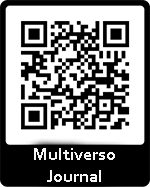Metacognitive strategies for teaching mathematics in secondary education
DOI:
https://doi.org/10.46502/issn.2792-3681/2024.6.2Keywords:
metacognitive strategies, mathematics teaching, secondary education in Ecuador, epistemological reflection.Abstract
Metacognitive strategies are associated with meaningful learning processes through which individuals and students are aware of the uses and applications of the knowledge they construct intersubjectively in the classroom. In this sense, metacognition strategies such as informed decisions, critical and associative thinking and mathematical reasoning have direct repercussions on the achievement of a type of education at the service of the development of human capacities, capable of creating epistemological bridges between formal education and the challenges of everyday life. In this context, the objective of the research was to describe some metacognitive strategies for teaching mathematics in secondary education in Ecuador, specifically in the General Unified High School of Ecuador. Methodologically, the tool of participant observation was used in the context of the unified general high school. The results obtained allow us to conclude that metacognitive strategies develop more intelligent people in the achievement of meaningful learning and more committed to the management of the teaching-learning processes in which they participate as knowledgeable subjects with autonomy to improve their lives.
References
Arias, F. G. (2009). El proyecto de investigación. Caracas: Editorial Episteme.
Canabal, C., & Margalef, L. (2017). La retroalimentación orientada al aprendizaje. Profesorado. Revista de Currículum y Formación de Profesorado, 21(02), 149-170. https://www.redalyc.org/pdf/567/56752038009.pdf
Contreras-González, L., & Figueiredo, C. (2014). Los ejemplos en la enseñanza de los conceptos matemáticos: clasificación, variación y transparencia. E. En C. Fernández, & J. González, Aprendizaje y razonamiento matemático. Libro homenaje a Alfonso Ortiz Comas (págs. 307 – 333). Málaga: Universidad de Málaga. https://acortar.link/n0hfGS
Curotto, M. (2010). La metacognición en el aprendizaje de la matemática. Revista Electrónica Iberoamericana de Educación en Ciencias y Tecnología, 02(02), 01-18. https://acortar.link/ZczImw
Espinoza, J. (2017). La resolución y planteamiento de problemas como estrategia metodológica en clases de matemática. Atenas, 03(39), 64-72. https://www.redalyc.org/journal/4780/478055149005/478055149005.pdf
Jaramillo, L., & Simbaña, V. (2014). La metacognición y su aplicación en herramientas virtuales desde la práctica docente. Sophia, Colección de Filosofía de la Educación, (16), 299-313. https://www.redalyc.org/pdf/4418/441846097014.pdf
Klimenko, O., & Alvares, J. L. (2009). Aprender cómo aprendo: la enseñanza de estrategias metacognitivas. Educación y Educadores, 12(02), 11-28. https://www.redalyc.org/pdf/834/83412219002.pdf
Matos, R. (2006). La práctica de la reflexión durante del aprendizaje de un instrumento musical. Revista de investigación, (59), 65-88. https://www.redalyc.org/pdf/3761/376140373003.pdf
Mato-Vázquez, D., Espiñeira, E., & López-Chao, V. (2017). Impacto del uso de estrategias metacognitivas en la enseñanza de las matemáticas. Perfiles Educativos, XXXIX(158), 91-111. https://www.scielo.org.mx/pdf/peredu/v39n158/0185-2698-peredu-39-158-00091.pdf
Ministerio de Educación. (12 de diciembre de 2023). Ministerio de Educación del Ecuador. Obtenido de Bachillerato General Unificado. https://educacion.gob.ec/curriculo-bgu/
Pérez, Y., & Ramírez, R. (2011). Estrategias de enseñanza de la resolución de problemas matemáticos. Fundamentos teóricos y metodológicos. Revista de Investigación, (73), 169-193. https://www.redalyc.org/pdf/3761/376140388008.pdf
Poblador, E. (2002). Reflexión sobre los procesos de enseñanza-aprendizaje del lenguaje escrito y marcos teóricos que los sustentan. Revista Interuniversitaria de Formación del Profesorado, (45), 203-219. https://www.redalyc.org/pdf/274/27404514.pdf
Ramírez-Ochoa, M., & Vizcarra-Brito, J. (2016). Desarrollo de habilidades matemáticas en estudiantes normalista. RA XIMHAI, 12(06), 285-293. https://www.redalyc.org/pdf/461/46148194019.pdf
Revelo-Sánchez, O., Collazos-Ordóñez, C. A., & Jiménez-Toledo, J. (2018). El trabajo colaborativo como estrategia didáctica para la enseñanza/aprendizaje de la programación: Una revisión sistemática de literatura. Tecno Lógicas, 21(41), 115-134. http://www.scielo.org.co/pdf/teclo/v21n41/v21n41a08.pdf
Rodrígueza, S., Piñeiroa, I., Regueiroa, B., E, G., & Vallea, A. (2014). Metas académicas, estrategias de aprendizaje y rendimiento académico en educación secundaria. Magister, (26), 01-09. https://doi.org/10.1016/S0212-6796(14)70012-X
Sánchez, C. (2020). Herramientas tecnológicas en la enseñanza de las matemáticas durante la pandemia COVID-19. Hamut´ay, 07(02), 46-57. http://dx.doi.org/10.21503/hamu.v7i2.2132
Sánchez, R. (2014). Ensenar a investigar Una didáctica nueva de la investigación en ciencias sociales y humanas. México DF: Universidad Nacional Autónoma de México.
Published
How to Cite
Issue
Section
License
Copyright (c) 2024 Plutarco Severo Ordóñez-Barberán, Darwin Daniel Sánchez-Godoy

This work is licensed under a Creative Commons Attribution 4.0 International License.
The authors who publish in this journal agree to the following terms:
The authors retain copyright and guarantee the journal the right to be the first publication where the article is presented, which is published under a Creative Commons Attribution License, which allows others to share the work prior to acknowledgment of the authorship of the article. work and initial publication in this journal.
Authors may separately enter into additional agreements for non-exclusive distribution of the version of the work published in the journal (for example, placing it in an institutional repository or publishing it in a book), with an acknowledgment of its initial publication in this journal.



















